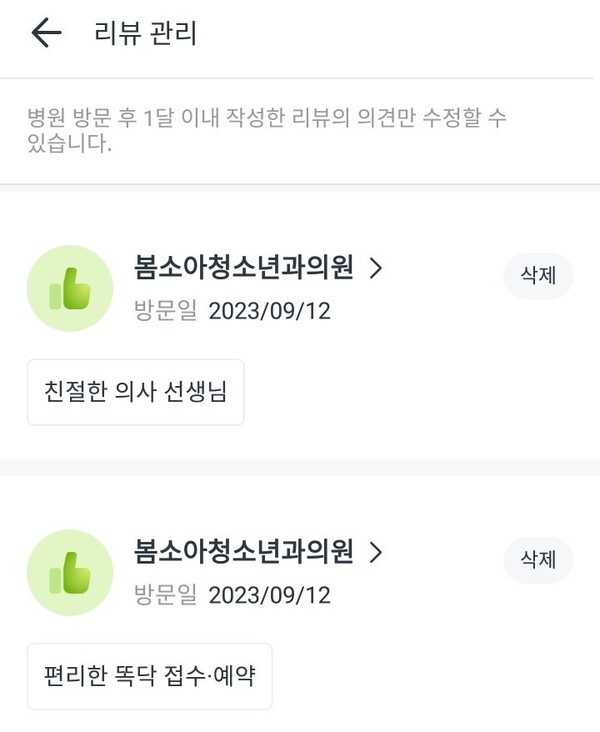The increasing use of mobile apps to make medical clinic appointments is polarizing access to healthcare in Korea.

On the morning of December 9, a pediatric clinic in Goyang, Gyeonggi Province, found itself filled with children and their parents eagerly waiting to see a doctor.
The majority had previously secured appointments through a medical clinic booking app.
However, a child and her parents, arriving around 10 a.m., were unfortunately turned away by clinic staff who explained, "We're already backlogged, so you won't be able to see us until the afternoon; please come back then."
Ddocdoc, developed by a Korean company called Bbros, stands out as the premier doctor's appointment app in Korea. Launched seven years ago, Ddocdoc boasts a subscriber base exceeding 10 million. However, controversy ensued when it introduced a monthly subscription fee of 1,000 won ($0.77) in September of this year.
Ddocdoc is available only in Korean language.
Ddocdoc is convenient for young parents
Parents of young children consistently express appreciation for Ddocdoc, emphasizing its role in saving them considerable waiting time. The app's functionality allows them to conveniently schedule appointments and locate hospitals based on available time slots.

Park Ji-hyun, a 38-year-old office worker who visited a pediatrician in Goyang City on Dec. 9, praised Ddocdoc for its convenience and time-saving benefits. She highlighted the significant improvement from enduring at least an hour of waiting at the hospital in the past. With Ddocdoc, she can effortlessly schedule appointments, and the reminder service ensures she never forgets the date and time.
Lee Sung-min, a 42-year-old self-employed individual who also visited a doctor on the same day, shared his positive experience, stating, "It's excellent to be able to review and schedule appointments through the Ddocdoc app. The inclusion of health information is particularly beneficial, offering valuable insights before the appointment."
A significant challenge for patients with limited smartphone use
As of the end of August this year, the Ministry of Health and Welfare reported that 3,922 out of 35,393 clinic-level medical institutions, constituting 11 percent, were utilizing Ddocdoc. Pediatric care, facing an extreme shortage, represented 21.9 percent of these cases.
While Ddocdoc has alleviated users from the inconvenience of long wait times for appointments and reception, concerns have arisen that it might impede the right to same-day reception and treatment for individuals less familiar with digital devices.
"I'm not accustomed to using a smartphone due to my age, so the process of installing the app and making an appointment is difficult," expressed Lee Im-kyung, a 65-year-old housewife.
Certain medical clinics have opted not to integrate Ddocdoc, mindful of patients who prefer traditional booking methods.
Kim Keun-ah, Director of IL Pediatric Clinic in Goyang, Gyeonggi Province, said, "We don't use Ddocdoc because it doesn't align with our clinic. We employ our reservation system, which differs from Ddocdoc and doesn't have such regulations, as it can be booked on the day of the appointment."
Lawmaker urges the formulation of policies for medical clinic booking apps
Amidst growing concerns, Rep. Han Jeoung-ae from the Democratic Party of Korea has urged the formulation of policies for medical clinic booking apps.
Recent data by the Ministry of Health and Welfare showed that, between Nov.1-10, 30 medical clinics received patient complaints about the inability to secure medical treatment due to reservations made through medical appointment apps like Ddocdoc.
"Ddocdoc accumulates medical information of people who make medical appointments, especially children and adolescents, from infancy, which not only violates the Medical Service Act but also breaches personal information laws," said Han. "The Ministry of Health and Welfare should actively devise healthcare policies that respond to technological changes, such as operating a public platform for medical appointments."

